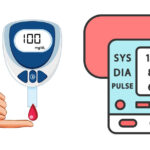Anxiety and hypertension, two prevalent health conditions, often coexist and can significantly impact individuals’ well-being. Recent studies have shed light on the intricate relationship between anxiety and high blood pressure. They highlight the importance of addressing both conditions for optimal health outcomes.
Understanding the Link between Anxiety and High Blood Pressure
Research has shown that anxiety is not only a consequence of hypertension. It is also an independent risk factor for its development. Unhealthy behaviors associated with anxiety, such as smoking, sedentary lifestyle, and obesity, can contribute to the onset of hypertension. Furthermore, individuals with hypertension may experience anxiety due to concerns about their condition or treatment efficacy. This stresses the bidirectional nature of the relationship between anxiety and high blood pressure.
Cumulative Effects on Health and Well-being
The coexistence of anxiety and high blood pressure poses a significant risk to cardiovascular health. This duo increases the likelihood of heart disease, stroke, and other cardiovascular events. Patients managing both conditions often face challenges. The challenges may be grouped into treatment compliance, quality of life, and healthcare costs compared to those without these comorbidities. Addressing anxiety in individuals with high blood pressure has been shown to enhance treatment adherence and overall well-being. This underscores the importance of a holistic approach to managing both conditions effectively.
Managing Anxiety and High Blood Pressure Together
Recent studies have highlighted gender differences in hypertension control rates among individuals with anxiety and/or depression. Women demonstrate a significantly faster rate of control than men. Lifestyle modifications such as regular physical activity have proven effective in reducing anxiety symptoms and lowering blood pressure in hypertensive individuals. Additionally, cognitive-behavioral therapy (CBT) has shown promise in treating both anxiety disorders and hypertension. CBT addresses negative thought patterns and promoting relaxation techniques.
Preventive Strategies for Better Health
Engaging in mindfulness practices like meditation or yoga has been associated with reduced stress levels. Yoga improves emotional well-being, and better blood pressure management in individuals dealing with anxiety and high blood pressure. Following a heart-healthy diet rich in fruits, vegetables, whole grains, and lean proteins can support blood pressure control while providing essential nutrients for mental well-being. Building a strong social support network has been linked to lower levels of anxiety and improved cardiovascular outcomes in individuals managing both anxiety and high blood pressure.
In conclusion, understanding the complex interplay between anxiety and hypertension is crucial for promoting better health outcomes. By addressing both conditions comprehensively through lifestyle modifications, therapy, and social support, individuals can empower themselves to manage their health effectively and improve their overall quality of life.
Further Reading
- Faye-Lim, L. et al (2021): Association between anxiety and hypertension in adults. Neuroscience & Biobehavioral Reviews.
- Tingting Q. et al (2023): Comorbidity of Anxiety and Hypertension: Common Risk Factors and Potential Mechanisms. International Journal of Hypertension.
- Anxiety. A cause for hypertension? Mayo Clinic, 2023.





